- News
- Reviews
- Bikes
- Accessories
- Accessories - misc
- Computer mounts
- Bags
- Bar ends
- Bike bags & cases
- Bottle cages
- Bottles
- Cameras
- Car racks
- Child seats
- Computers
- Glasses
- GPS units
- Helmets
- Lights - front
- Lights - rear
- Lights - sets
- Locks
- Mirrors
- Mudguards
- Racks
- Pumps & CO2 inflators
- Puncture kits
- Reflectives
- Smart watches
- Stands and racks
- Trailers
- Clothing
- Components
- Bar tape & grips
- Bottom brackets
- Brake & gear cables
- Brake & STI levers
- Brake pads & spares
- Brakes
- Cassettes & freewheels
- Chains
- Chainsets & chainrings
- Derailleurs - front
- Derailleurs - rear
- Forks
- Gear levers & shifters
- Groupsets
- Handlebars & extensions
- Headsets
- Hubs
- Inner tubes
- Pedals
- Quick releases & skewers
- Saddles
- Seatposts
- Stems
- Wheels
- Tyres
- Health, fitness and nutrition
- Tools and workshop
- Miscellaneous
- Tubeless valves
- Buyers Guides
- Features
- Forum
- Recommends
- Podcast
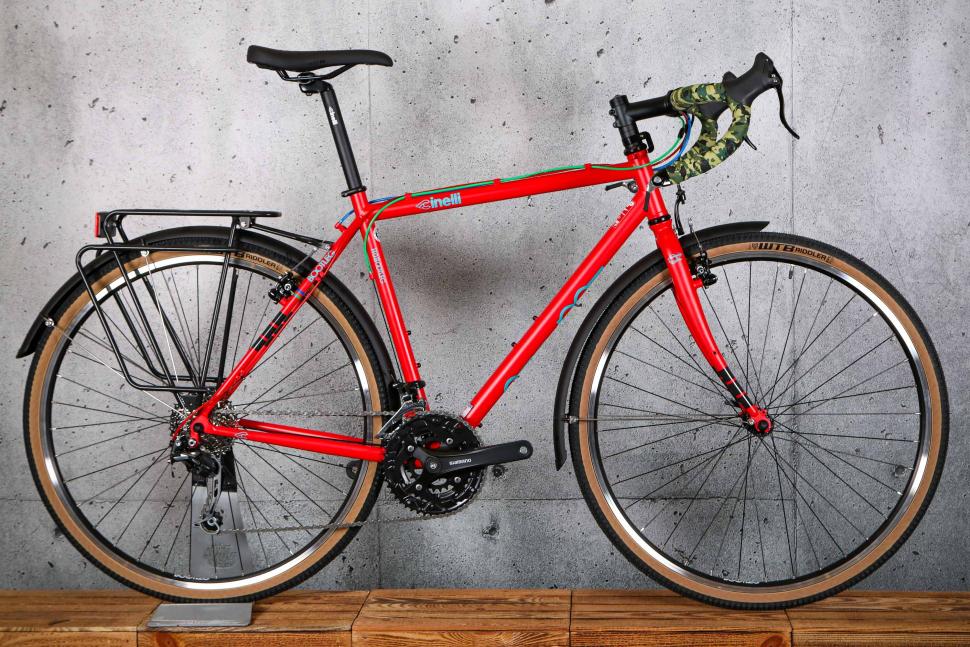 2023 Cinelli Hobootleg.jpg
2023 Cinelli Hobootleg.jpg£1,499.00
VERDICT:
Comfortable to ride on all kinds of terrain, with a certain 'old school' charm, if pricey against the competition
Comfortable frame
Plenty of mounts
Accessories included in the price
Pricey against the competition
Weight:
13,780g
Contact:
At road.cc every product is thoroughly tested for as long as it takes to get a proper insight into how well it works. Our reviewers are experienced cyclists that we trust to be objective. While we strive to ensure that opinions expressed are backed up by facts, reviews are by their nature an informed opinion, not a definitive verdict. We don't intentionally try to break anything (except locks) but we do try to look for weak points in any design. The overall score is not just an average of the other scores: it reflects both a product's function and value – with value determined by how a product compares with items of similar spec, quality, and price.
What the road.cc scores meanGood scores are more common than bad, because fortunately good products are more common than bad.
- Exceptional
- Excellent
- Very Good
- Good
- Quite good
- Average
- Not so good
- Poor
- Bad
- Appalling
The Cinelli HoBootleg keeps things simple; it's a back-to-basics, do-it-all tourer/adventure bike, a combination of a strong, reliable frameset and components that can be fixed at the side of the road, or a workshop in the back of beyond. It has a decent ride quality, too, and even though it is on the heavy side, it isn't a chore to ride.
If you're dreaming about seeing the world on two wheels, check out our guide to the best touring bikes, or for adventures on the rough stuff, our guide to the best gravel bikes.
You could argue that the HoBootleg is a gravel bike from before gravel bikes were a thing. It's been in Cinelli's line-up for more than a decade, and achieved an impressive 'adventure' palmares according to the opening paragraph on Cinelli's website, such as breaking the Guinness World Record for crossing the world by bicycle and conquering all seven of the world's highest mountain passes.
Cinelli HoBootleg: Ride
As a big-tyred tourer it makes a lot of sense for everything from commuting to exploring your local lanes or a far-flung adventure, especially if you are on a budget. With new bike prices bringing a tear to the eye, the fact that Cinelli has priced this a penny under 1,500 quid is a bonus.
That's not to say there aren't compromises, the main one being weight, with this medium model coming in at 13.78kg (30.4lb) on our office scales.
Now, no one is looking at the HoBootleg and going 'ooooh...racy', but neither do you want to be riding around on a sluggish bike, especially if your route takes you up plenty of hills, or you have plenty of stop/start points like traffic lights on a commute. Thankfully, Cinelli has specced that rare beast – the triple chainset.
I can't even remember the last time I used one, but it is the HoBootleg's saving grace.
The combination of 48/36/26T chainrings mated to the 9-speed 11-34T cassette takes the strain when you are moving off the line and allows you to spin on pretty much any climb. Helpful if you are loaded up with kit, and the ascent is long.
The inclusion of bar-end shifters is also something that takes a bit of getting used to, but for the type of riding the Cinelli is aimed at, where quick and crisp shifts aren't top of the list, they work.
In terms of ride quality, the Cinelli is a pleasant place to be. The frame and fork both have that supple feeling offered by steel tubing, topped up by the squidge allowed by the 37mm tyres, which makes the HoBootleg a joy to ride over long distances.
It's definitely a comfortable bike, with a riding position I found purposeful, with a decent drop from saddle to handlebar but without being overly extreme, keeping your upper body relaxed on longer trips.
Feedback levels are decent enough, so you can feel what your tyres are up to regardless of terrain, although you can also feel a small amount of flex around the bottom bracket area and fork legs when putting the power down. It's nothing major, and for the type of bike it's well within the tolerances of what I'd expect.
In terms of its geometry, the HoBootleg has a shorter head tube than most modern gravel bikes, and therefore a slightly lower stack measurement. As I said above, though, the front end doesn't feel excessively low. Plus, with the fork's steel steerer you can also run plenty of spacers, whereas with carbon fibre the general consensus is to limit them to 20mm.
Other than that, the geometry is generally relaxed, with a 71-degree head angle and a wheelbase of over a metre on this review model, making it an easy bike to ride, even when loaded up with kit.
The handling is very neutral, so while not exactly exciting, it is easy to live with. Ideal for those rides where you don't know the terrain or when fatigue is starting to kick in.
For such a neutral front end the HoBootleg descends reassuringly well, helped I'd say by its overall weight. It feels planted and secure, which means you don't need to rein in the speed too much unless the descent is a technical one.
The brakes give decent stopping power, although there is a bit of flex in the system when you are really hauling on the anchors. With pretty much all of my riding being carried out on hydraulic discs these days, I did miss them in the wet, but I never found that the canti brakes reduced my confidence in the dry.
Cinelli HoBootleg: Frame and Fork
The HoBootleg has a steel frame, specifically double-butted Columbus Cromor tubing, which is a 25CrMo4 steel, seamed and cold drawn, if you like to know the technical details.
Just like the full bike, it ain't light, with a frame averaging 2.3kg and the fork with an uncut steerer weighing in at 1.25kg.
It's neatly welded, with an 'engineered' look to it thanks to the welds being left in their raw state rather than being sanded and filled. The red paint job is also functional, with its matt finish being tough and durable while still looking bright and vibrant.
All cables are run externally, with the multicoloured outers being directed along the upper part of the top tube. This keeps them out of the way of mud and road spray, and also allows you to carry the bike on your shoulder without any cables digging into your skin. They clash slightly with modern frame bags, but the fact that the HoBootleg comes with front and rear racks included (the front wasn't fitted in time for our pics) means you don't really need them.
There are plenty of mounts other than those used for the racks, too. You get full mudguard mounting alongside your usual bottle cage mounts, and extra cage mounts under the down tube.
The wheels are fitted to the frame and fork via quick release axles as opposed to thru-axles, which for this kind of bike I have no issue with whatsoever.
The bottom bracket is set up to accept a threaded BSA 68mm.
Tyre clearance is generous at 38mm with full mudguards fitted, and 42mm without.
Sizing-wise, the Cinelli is available in five options ranging from XS to XL. That equates to seat tube lengths of 490mm to 610mm measured from the centre of the bottom bracket to the top of the tube.
I've touched on the general geometry in relation to other bikes above, and as I said there is nothing out of the ordinary really. On this medium size, you are looking at an effective top tube length of 540mm and a head tube length of 125mm. The seat tube is 480mm centre to centre (53cm centre to top), with an angle of 73.5 degrees, while the head angle is 1.5 degrees slacker. The wheelbase is 1,031mm in total, with 440mm chainstays.
In terms of stack and reach figures you are looking at 572mm and 370mm respectively.
Cinelli HoBootleg: Finishing kit
The HoBootleg is available in two versions, this one at £1,499 and the Easy Travel, which comes with Shimano's 9-speed Sora shifters/brake levers and a slightly larger ratio triple chainset, for £1,799.
The model we have uses a Sora front mech, Deore rear mech, Shimano triple chainset and Microshift bar-end shifters. Microshift also provides the cassette, while Tektro supplies the V-brake callipers and levers.
By modern standards the drivetrain and brakes are quite simplistic, but they work fine, plus they have the advantage of being easy to fix or bodge while out in the back of beyond. If you are using the Cinelli for touring across countries that don't have a gleaming high-end bike shop in every town or village, you are still likely to be able to get spares for the older technology components.
Their performance isn't up there with the latest kit you can get, but with a bit of adaptation I never found either the brakes or gears to dampen the joy of riding or to be inferior.
The rest of the finishing kit is Cinelli branded, with an alloy stem, handlebar and seatpost. It's decent stuff, with stiffness where it's required and, in the case of the handlebar, plenty of positions for your hands.
The saddle is a WTB Bolt, which I got on well with. Its slim nature suited my preference for saddles with minimal padding, and the length allows for changes in the fore and aft position.
As for the wheels, they too are on the basic and weighty side, but decent performers, a combination of Alexrims and Shimano hubs, with 32 spokes front and rear.
They're tough and durable, with no issues whatsoever when it comes to trueness and spoke tension. With brass nipples, corrosion isn't as much of an issue as with aluminium ones, and they should be easy to true out in the wilds should the need arise.
There is no mention of any tubeless compatibility with the wheels nor the WTB Riddler tyres, which may or may not be an issue for you.
The tyres are good all-rounders, with a slight tread for unpaved routes while still managing to roll well enough on the road. I rode the HoBootleg through a very wet December and beginning of January with their various storms and didn't suffer any punctures or issues from the roads strewn with branches and the like.
Getting full mudguards is a bonus, although the front could definitely do with being longer, and a mudflap wouldn't go amiss to help keep your feet dry.
The rear won't stop following riders getting covered in spray, either.
Cinelli HoBootleg: Value
While the HoBootleg comes in at a lower price point than many bikes on the market, that doesn't mean it's particularly good value compared with similar options.
Marin's Nicasio+ has a 4130 chromoly steel frame and fork, and weighs about the same at just over 13kg. It has cable-operated disc brakes, loads of mounting points and wide tyre clearances. The Microshift Advent groupset is 1x, so you don't get as wide a range of gearing as the Cinelli, but it is only £1,045.
Sonder's Santiago, which I rode a few years back and was very impressed with overall, is a tourer with a steel frame and fork, a mixture of chromoly and Reynolds 631 for the main triangle. There's no triple chainset option, but at just over 11kg the bikes generally weigh 2kg less. Current builds start at £1,299 for a 1x SRAM Apex build with mechanical brakes, or for the same money as the Cinelli you can get a 1x Apex build with hydraulic brakes. A 2x SRAM Rival 22 Grand Tourer build, which includes full mudguards and a rear rack, is available for £1,799, the same money as the Sora-equipped Easy Travel HoBootleg.
We recently reviewed Spa Cycles' Elan Ti Mk2, which has similar tyre clearances to the HoBootleg, relaxed geometry and all the mounts you could need. The titanium frame pushes the price up, but for the more budget conscious it's also offered in steel, namely Reynolds 725. You also get a carbon fibre fork with an aluminium steerer. A Mk1 (post-mount calliper compatibility) Sora-equipped build with mechanical TRP Spyre disc brakes and a Spa triple chainset has an rrp of £1,450.
Cinelli HoBootleg: Conclusion
Overall, if you want a comfortable, back-to-basics tourer with the ability to take on variable terrains then look no further than the HoBootleg. It's got a lot going for it in terms of comfort and rideability. You'll want to find it on offer, though, as at full price it struggles against the competition on value.
Verdict
Comfortable to ride on all kinds of terrain, with a certain 'old school' charm, if pricey against the competition
road.cc test report
Make and model: Cinelli Hobootleg
Size tested: M/53
About the bike
List the components used to build up the bike.
Drivetrain: Shimano Sora 9 speed
Shifters: Tektro road race / MICROSHIFT Bar end shifter / 9 speed
Front Derailleur: SHIMANO SORA / 9 Speed / Band type
Rear Derailleur: Shimano Deore (RD-M592) / 9 Speed
Brakes: TEKTRO
Cassette: Microshift / 9 Speed / 11-34T
Chainset: SHIMANO / 48-36-26T / Size 170 (S/M) 175 (L/XL/XXL)
Chain: KMC (Z9)
Wheels: ALEX - SHIMANO Hub / 700c
Tyres: WTB Riddler / 700X37c / Tan sidewall
Handlebar: CINELLI Bootleg 31.8 / D: 116mm R: 75mm / Flare: 10Deg
Seatpost: CINELLI 6061 Seat Post / 27,2mm / L 350mm
Stem: CINELLI Bootleg Size 90 (S) 100 (M) 110 (L/XL/XXL)
Saddle: WTB Volt
Tell us what the bike is for and who it's aimed at. What do the manufacturers say about it? How does that compare to your own feelings about the bike?
Cinelli says, "The bike you need if.....you want a do anything, go anywhere, steel adventure and touring bike, that is capable of circumnavigating the globe and can be maintained and repaired at the roadside without the need of a complete support team."
It has an excellent comfortable ride for those long, steady tours, and the simplistic nature of the components means you can fix and fettle them with minimal tools.
Where does this model sit in the range? Tell us briefly about the cheaper options and the more expensive options
There are just two options: the model on test, and the HoBootleg Easy Travel, with Shimano Sora STI levers instead of the bar-end shifters, for £1,799.
Frame and fork
Overall rating for frame and fork
7/10
Tell us about the build quality and finish of the frame and fork?
A well-finished and tidy build throughout the frame and fork.
Tell us about the materials used in the frame and fork?
Frame: COLUMBUS Cromor Double Butted Steel
Fork: COLUMBUS Cr-Mo Steel 1 1/8in
Tell us about the geometry of the frame and fork?
The geometry is relaxed, making for a bike that is easy to ride on variable terrain.
How was the bike in terms of height and reach? How did it compare to other bikes of the same stated size?
The short head tube gives a slightly lower stack height compared to an endurance road bike of a similar size, but the fact that you can run many spacers if you desire means the front end doesn't give too extreme a position. This means you could go for the smaller option if you are between frame sizes like I was, without sacrificing front end height.
Riding the bike
Was the bike comfortable to ride? Tell us how you felt about the ride quality.
Yes. You get that smooth steel ride feel, backed up by the voluminous tyres.
Did the bike feel stiff in the right places? Did any part of the bike feel too stiff or too flexible?
There is some flex around the bottom bracket area and the fork legs, although not enough to cause any concern for the type of riding the Cinelli is designed for.
How did the bike transfer power? Did it feel efficient?
Power transfer is within the expected limits for this kind of bike, but as I said above you can feel flex around the bottom bracket area when climbing hard out of the saddle.
Was there any toe-clip overlap with the front wheel? If so was it a problem?
No.
How would you describe the steering? Was it lively neutral or unresponsive? Neutral.
Tell us some more about the handling. How did the bike feel overall? Did it do particular things well or badly?
The relaxed front end gives neutral handling on and off the road.
Which components had the most effect (good or bad) on the bike's comfort? would you recommend any changes?
The saddle is comfortable and the tyres feel reasonably supple.
Which components had the most effect (good or bad) on the bike's stiffness? would you recommend any changes?
The wheels feel tight, and I didn't notice any major flex from the handlebar when out of the saddle.
Which components had the most effect (good or bad) on the bike's efficiency? would you recommend any changes?
A triple chainset offsets the bike's overall weight.
Rate the bike for efficiency of power transfer:
7/10
Rate the bike for acceleration:
7/10
Rate the bike for sprinting:
6/10
Rate the bike for high speed stability:
7/10
Rate the bike for cruising speed stability:
8/10
Rate the bike for low speed stability:
8/10
Rate the bike for flat cornering:
8/10
Rate the bike for cornering on descents:
7/10
Rate the bike for climbing:
7/10
The drivetrain
Rate the drivetrain for performance:
7/10
Rate the drivetrain for durability:
8/10
Rate the drivetrain for weight:
7/10
Tell us some more about the drivetrain. Anything you particularly did or didn't like? Any components which didn't work well together?
A mix of components but it works well, especially if you want a bike that's relatively easy to service and fix.
Wheels and tyres
Rate the wheels for performance:
7/10
Rate the wheels for durability:
8/10
Rate the wheels for weight:
7/10
Rate the wheels for comfort:
7/10
Tell us some more about the wheels.Did they work well in the conditions you encountered? Would you change the wheels? If so what for?
A solid build that is well chosen for this kind of bike, focusing on durability over performance.
Rate the tyres for performance:
7/10
Rate the tyres for durability:
8/10
Rate the tyres for weight:
7/10
Rate the tyres for comfort:
7/10
Tell us some more about the tyres. Did they work well in the conditions you encountered? Would you change the tyres? If so what for?
Good all-round tyres that work well enough on the road and away from it.
Controls
Rate the controls for performance:
7/10
Rate the controls for durability:
8/10
Rate the controls for weight:
7/10
Rate the controls for comfort:
7/10
Tell us some more about the controls. Any particularly good or bad components? How would the controls work for larger or smaller riders?
Decent all-round kit; nothing flash but it does the job.
Your summary
Did you enjoy riding the bike? Yes
Would you consider buying the bike? Possibly, if I could get it at a reduced price.
Would you recommend the bike to a friend? Yes
How does the price compare to that of similar bikes in the market, including ones recently tested on road.cc?
It is much more expensive than many other bikes in this genre, like the three mentioned in the review.
Rate the bike overall for performance:
8/10
Rate the bike overall for value:
4/10
Use this box to explain your overall score
It's generally a very good bike, based around a quality frame and fork and simple and reliable components. It does look pricey, though, compared with the competition on a like-for-like basis, which is what limits the overall score to 7; it's good, but a lower price might have tipped it into an 8.
About the tester
Age: 44
I usually ride: This month's test bike My best bike is: B'Twin Ultra CF draped in the latest bling test components
I've been riding for: Over 20 years I ride: Every day I would class myself as: Expert
I regularly do the following types of riding: time trialling, commuting, club rides, sportives, fixed/singlespeed,
Since writing his first bike review for road.cc back in early 2009 senior product reviewer Stu has tested more than a thousand pieces of kit, and hundreds of bikes.
With an HND in mechanical engineering and previous roles as a CNC programmer/machinist, draughtsman and development engineer (working in new product design) Stu understands what it takes to bring a product to market. A mix of that knowledge combined with his love of road and gravel cycling puts him in the ideal position to put the latest kit through its paces.
He first made the switch to road cycling in 1999, primarily for fitness, but it didn’t take long for his competitive side to take over which led to around ten years as a time triallist and some pretty decent results. These days though riding is more about escapism, keeping the weight off and just enjoying the fact that he gets to ride the latest technology as part of his day job.
Latest Comments
- mdavidford 22 min 42 sec ago
You seem to have bought into this misleading quote:...
- Smac9 37 min 8 sec ago
I think the 2.5 star rating is a bit mean . I own one of these and have no issues using them. I am not a chemical engineer so cannot verify the eco...
- David9694 36 min 25 sec ago
Hi all I'm looking for advice on what constitutes vigilantism (and what doesn't) and whether you get called "pedo" etc if you practise it. ...
- David9694 1 hour 42 sec ago
Faussett Hill, Canterbury, reopens after car crashes into fence belonging to The Granville pub...
- AidanR 1 hour 19 min ago
That's my thinking too. Why would I be concerned about my visibility by night, but not by day?
- Rome73 1 hour 21 min ago
No, Lime pay the councils to operate in the borough, not the other way around. They will also pay for the infrastructure - how much will depend on...
- dh700 2 hours 44 min ago
If you believe the Dutch have solved this problem via construction, explain why their cyclist fatality rate remains so disturbingly high. They are...
- Rendel Harris 3 hours 8 min ago
The compulsory third-party insurance in NZ only covers personal injury; property damage requires extra insurance that isn't compulsory, so that's...
- andystow 4 hours 29 min ago
This is the bike I used for my LEJoG last year. After that, it deserved a treat: new powder coat and new wheels after the Hunt wheels cracked at...


















































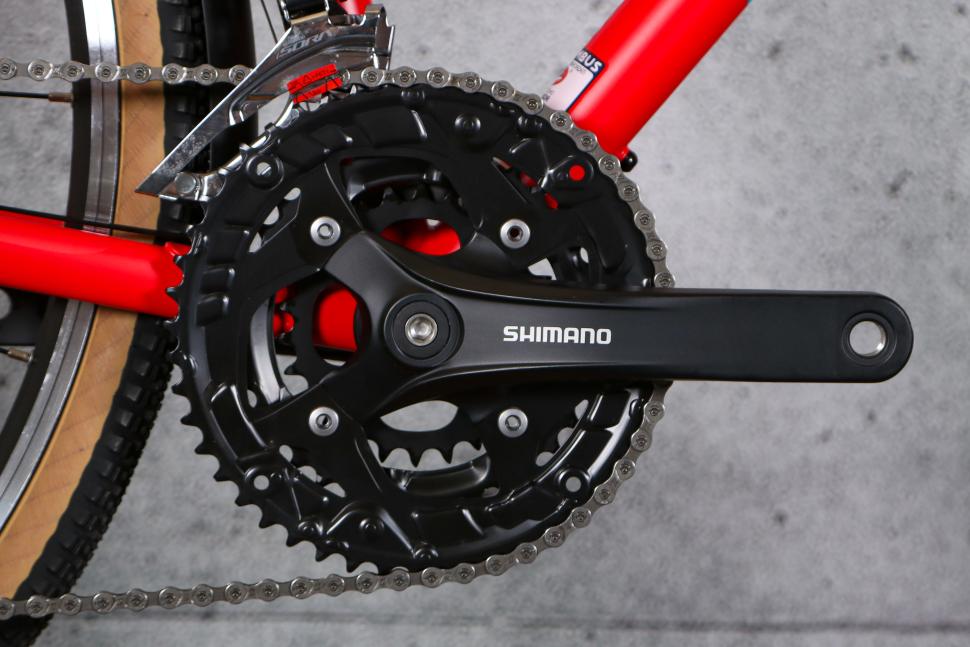
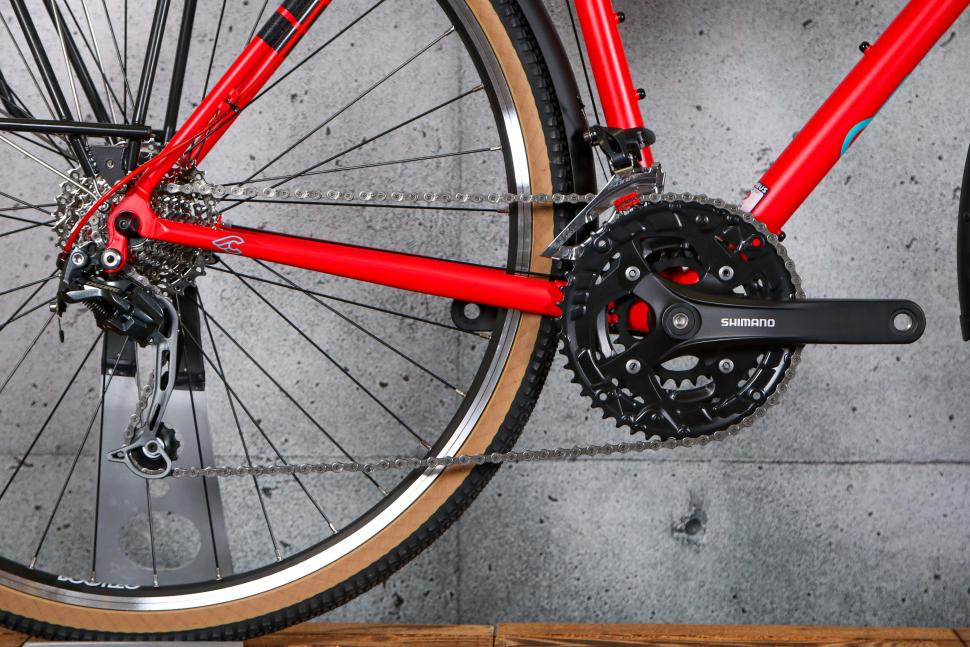
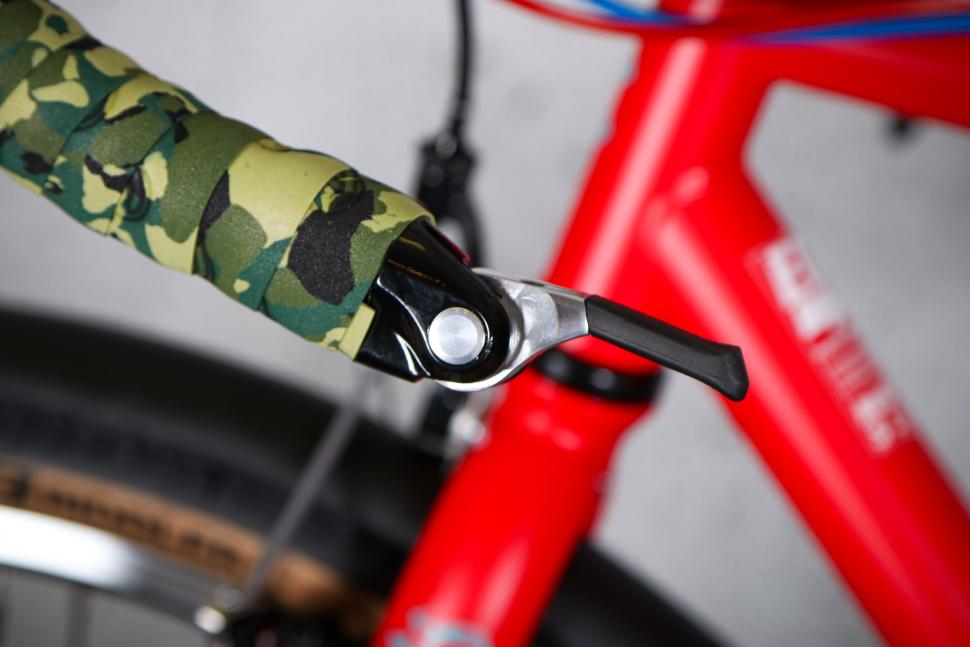
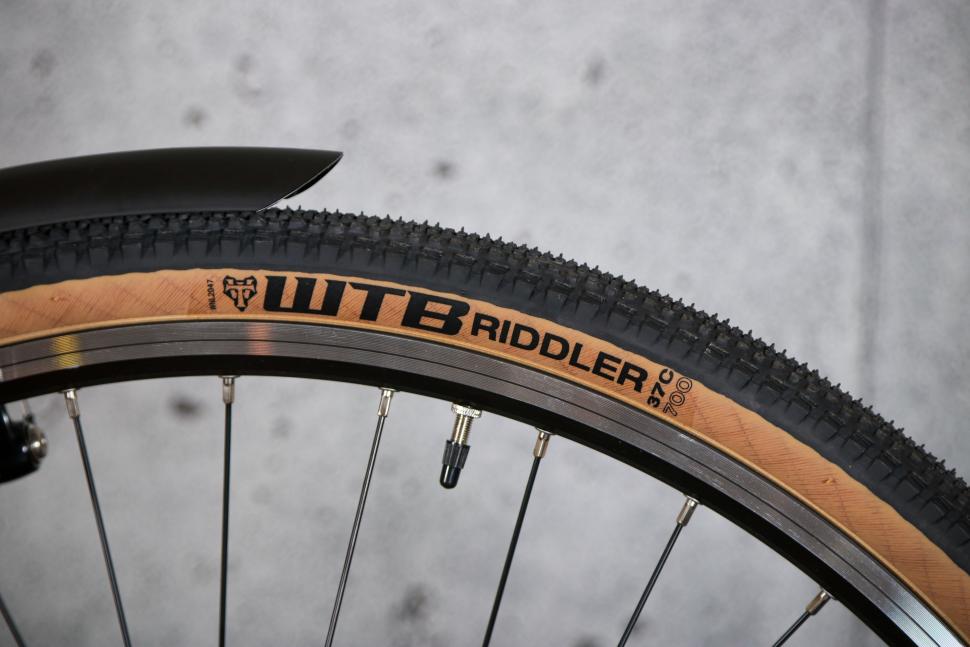
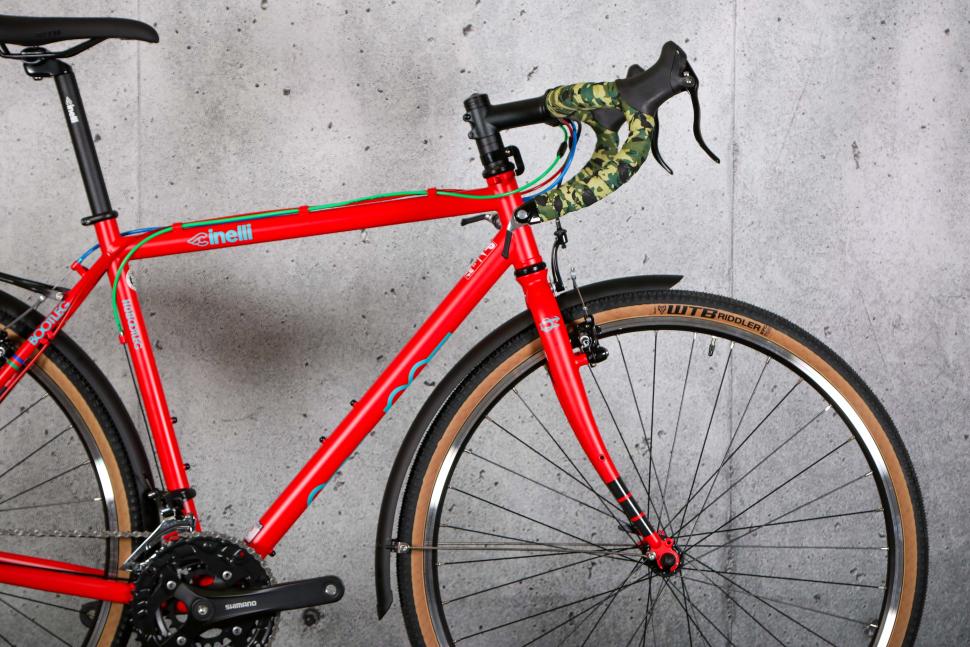
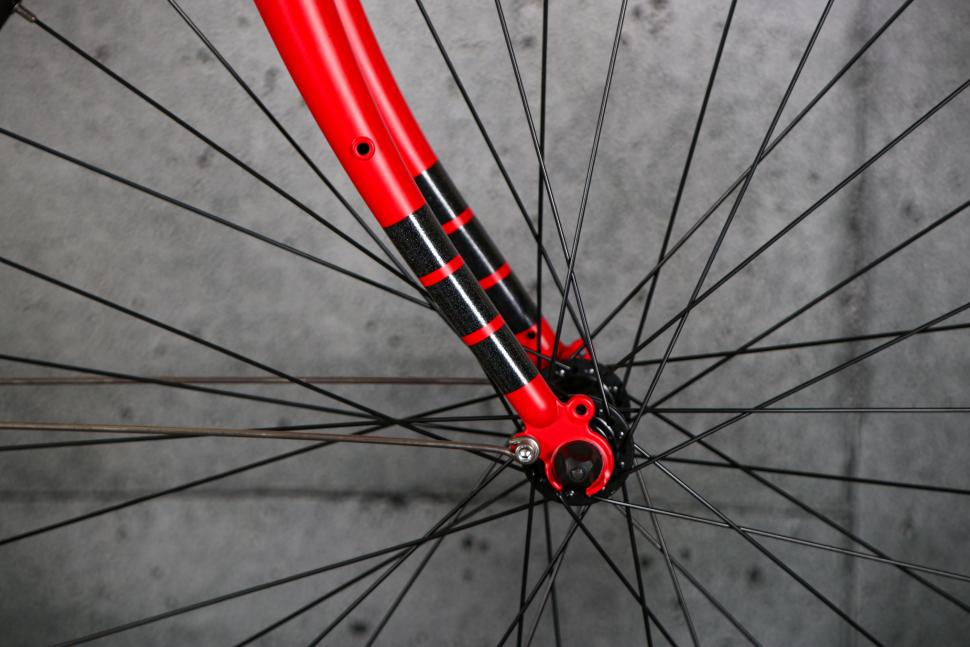
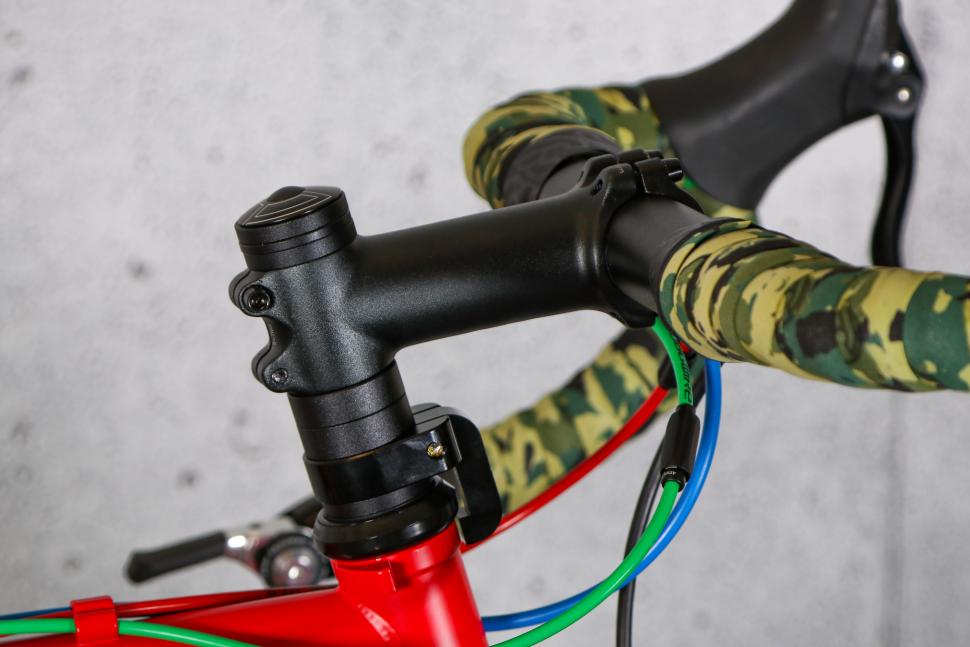
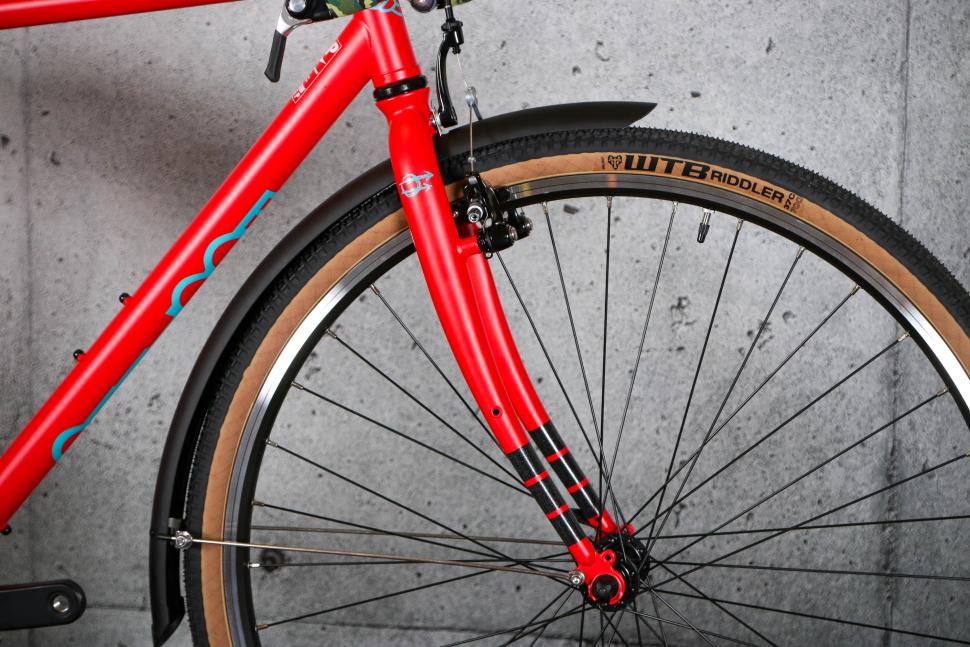
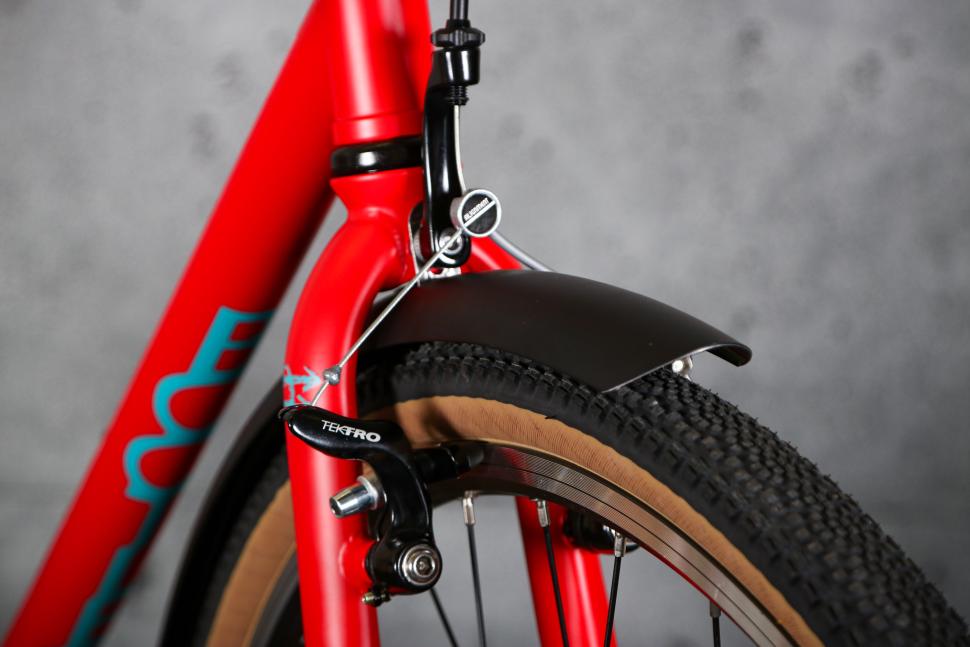
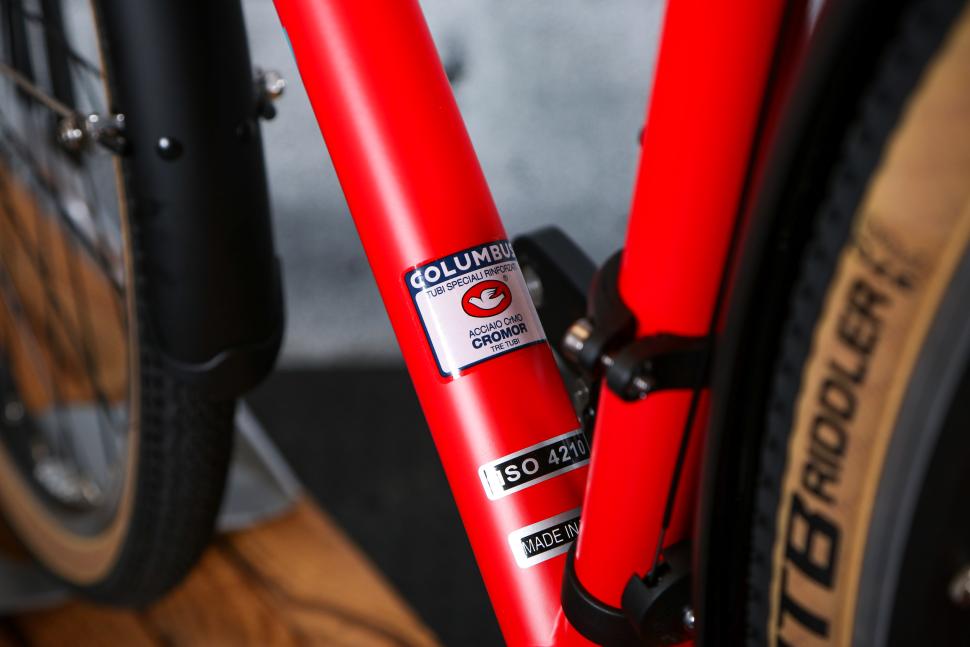
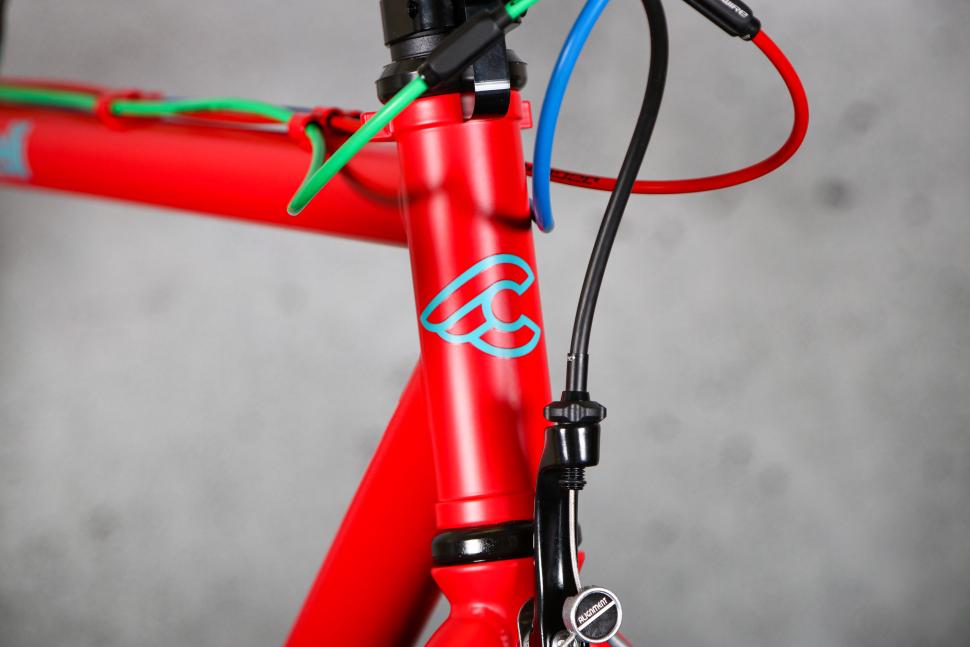
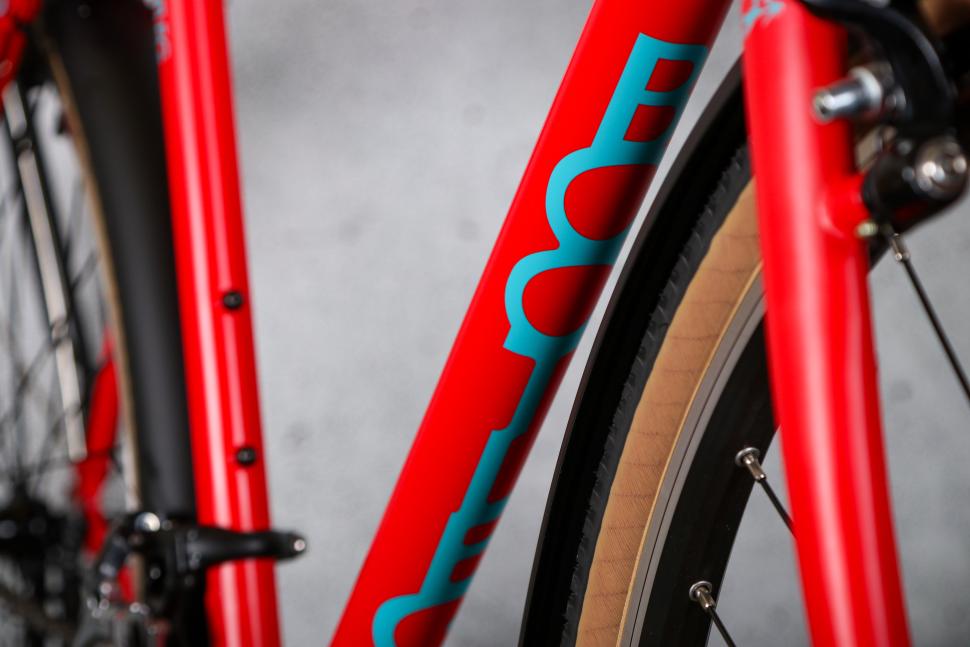
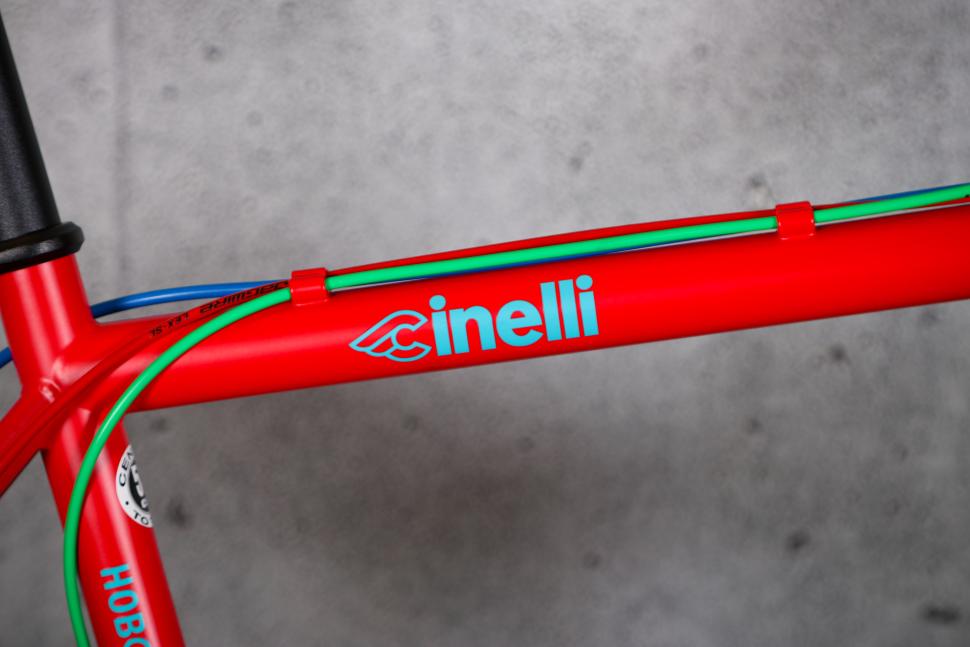
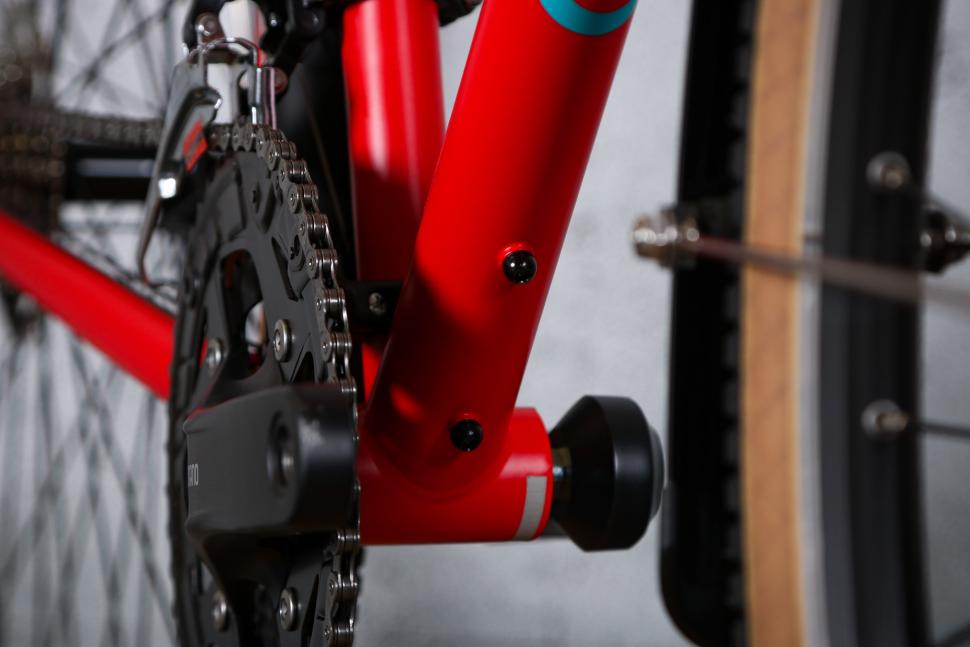
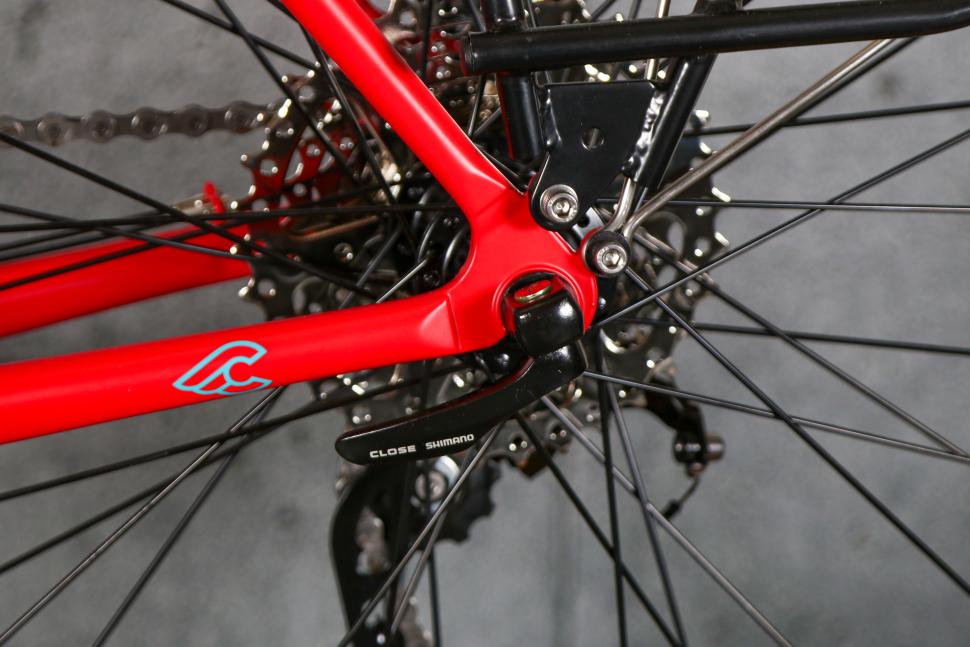
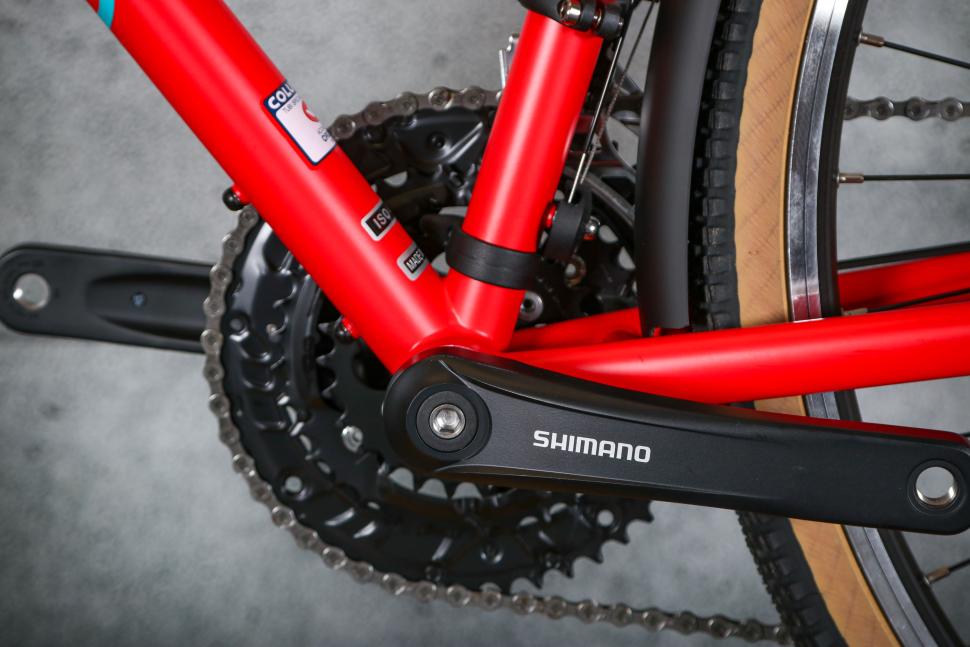
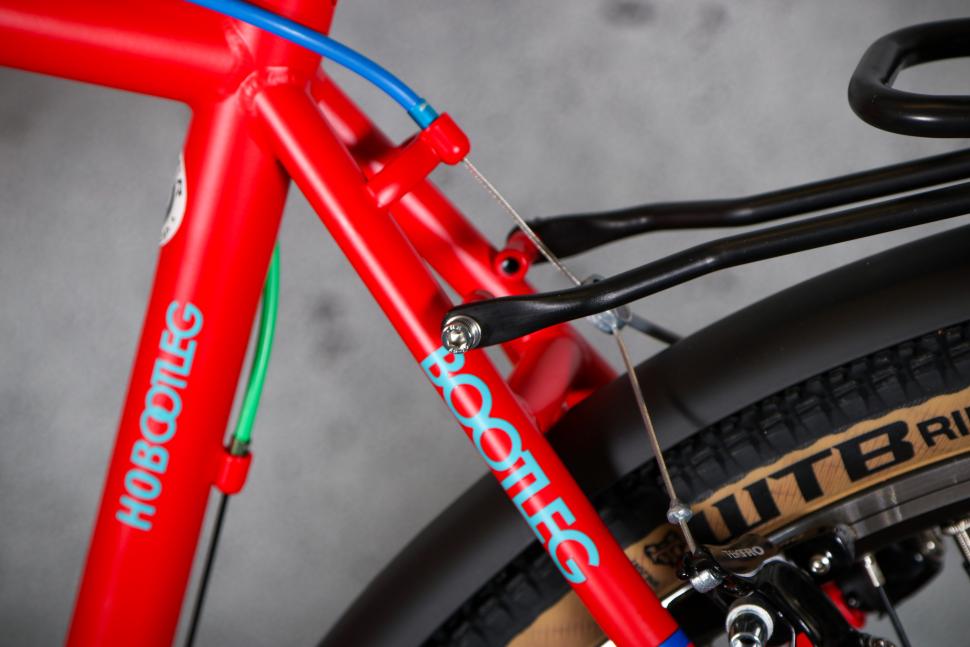
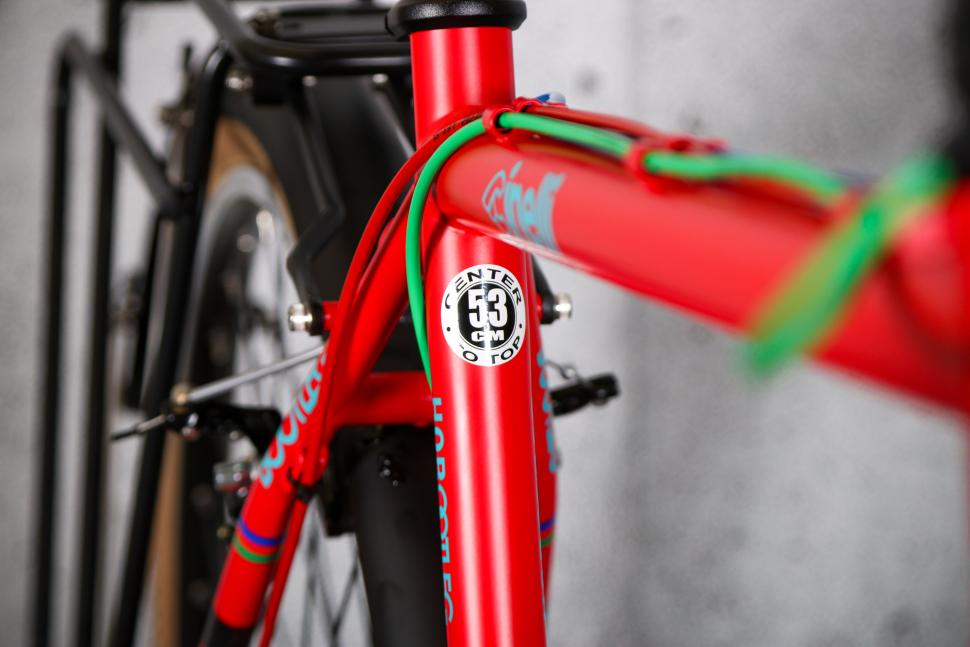
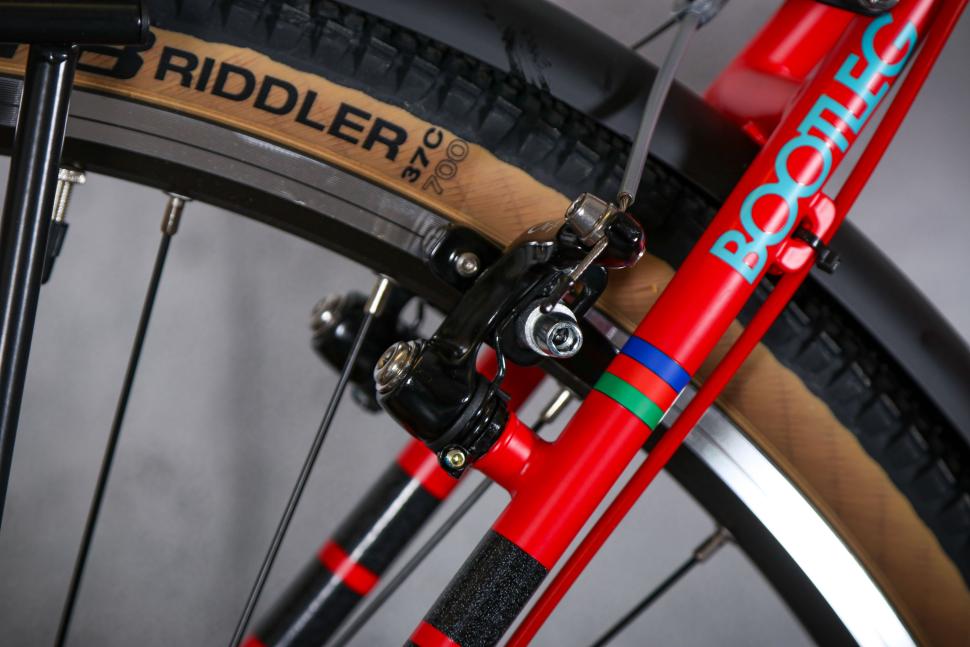
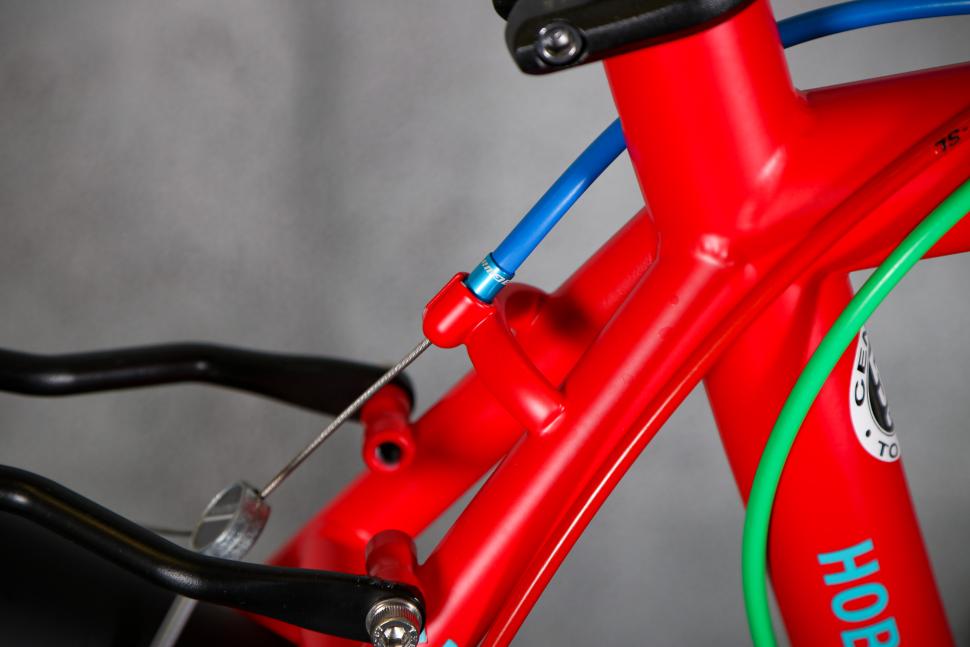
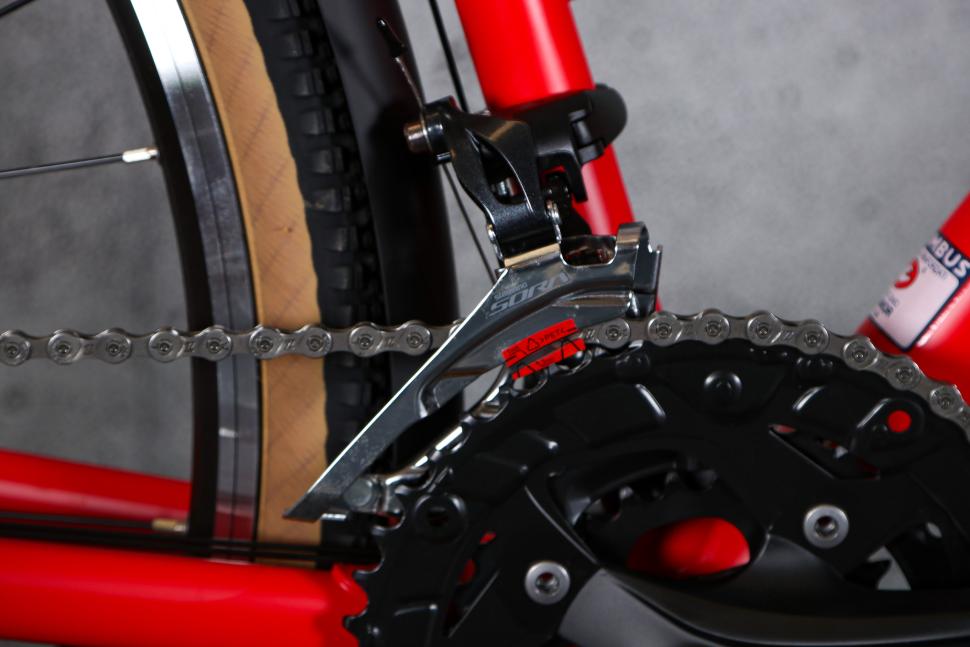
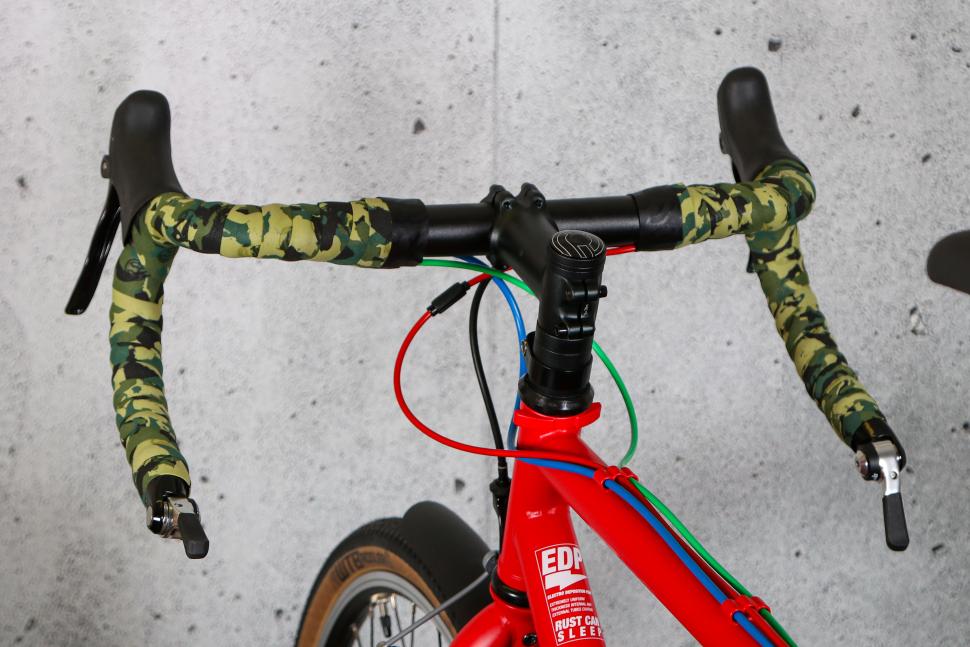
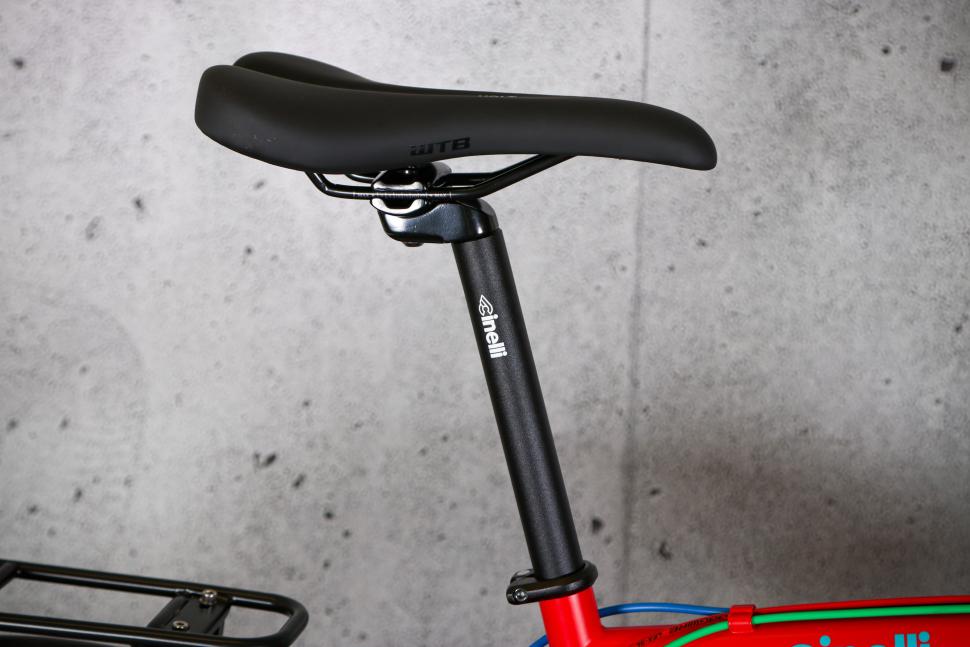
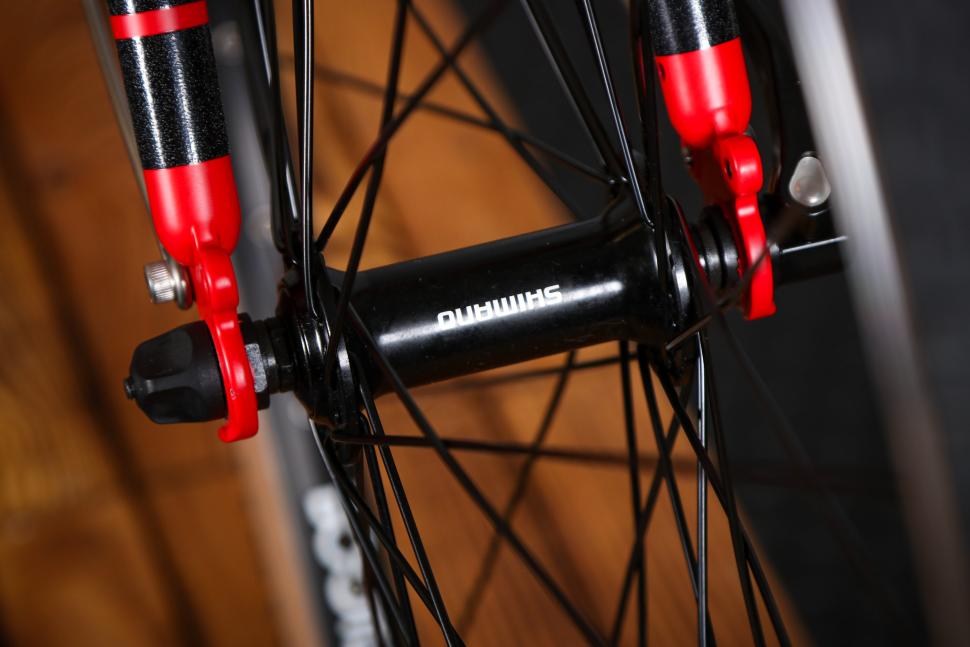
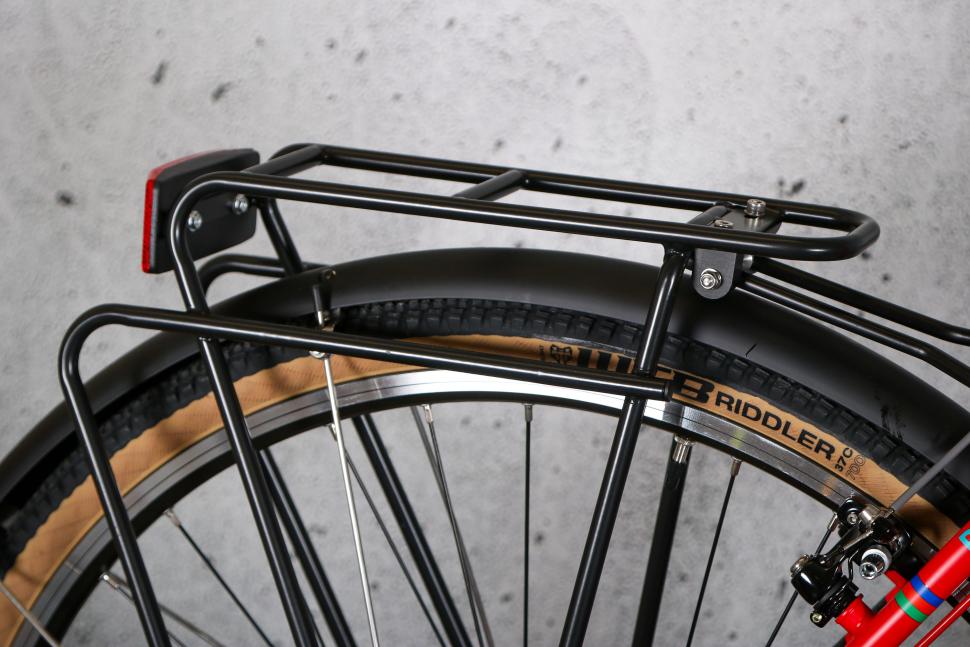
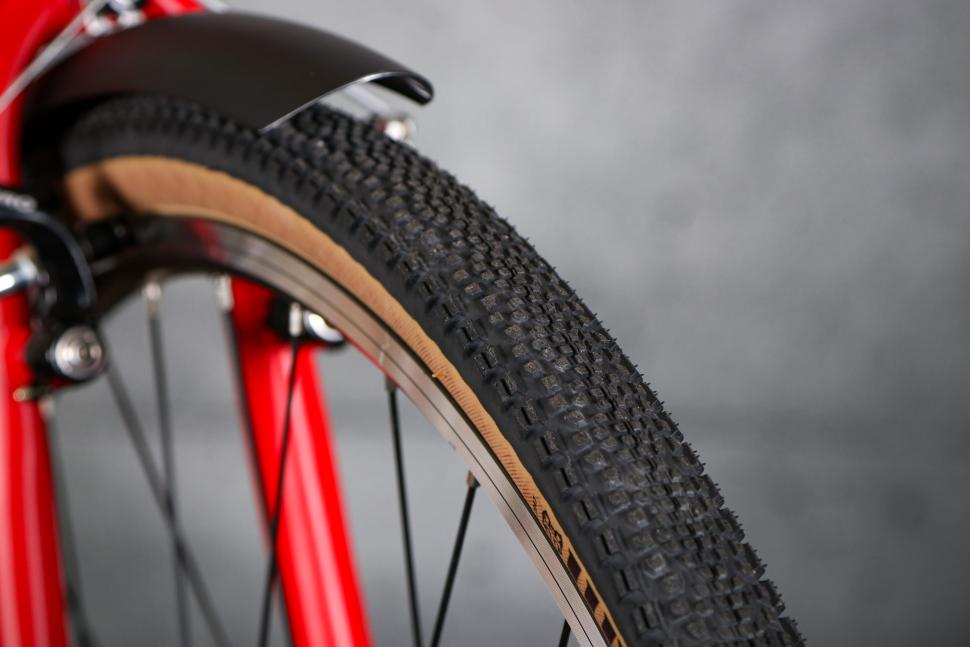
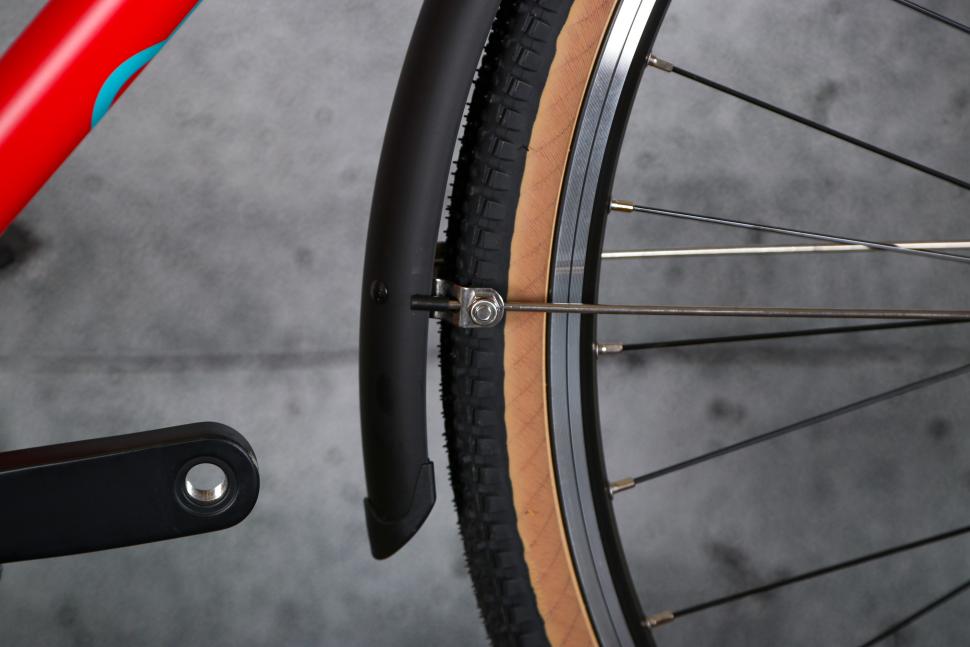
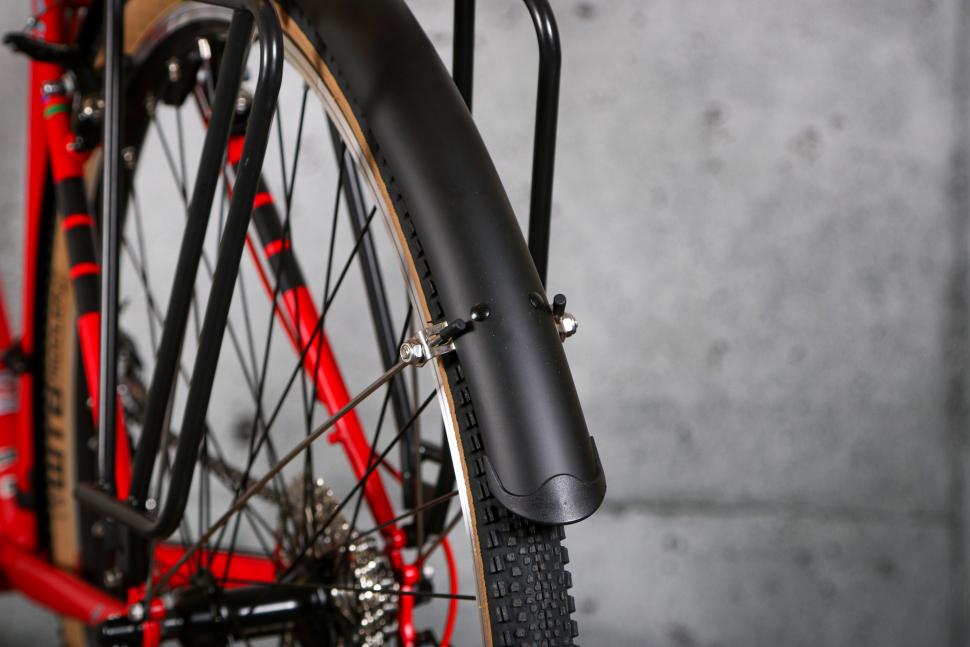
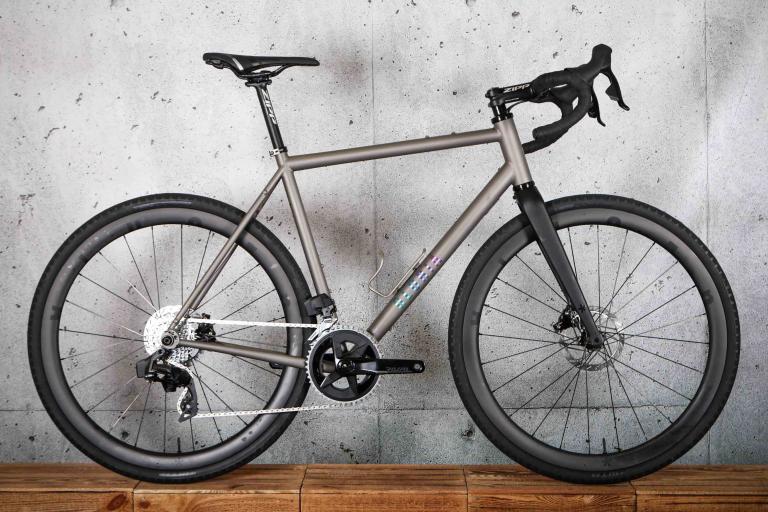
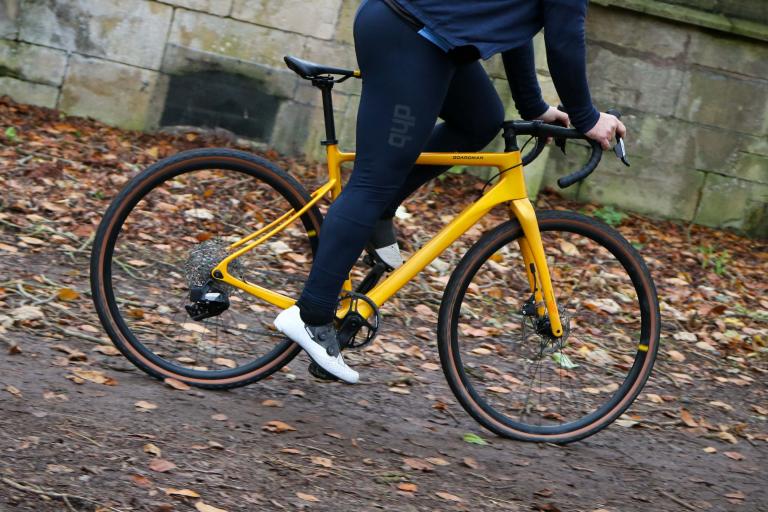
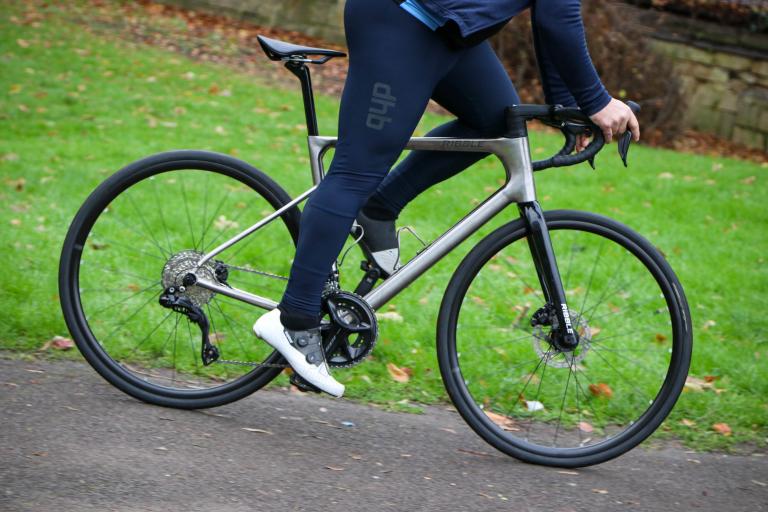
Add new comment
17 comments
Could've taken off the height guide sticker from the front mech before snapping the pics
Bikes like this would be so much more useful if they came with dynamo lights, like is often the case with this type of bike in Europe. I wanted a utility bike (like this) last year and the number with dynamo lights was really quite small. Still at least it made the choosing easier. Yes, of course you can retro-fit but it's never the same and involves more expense.
Fair enough, we can agree on that. I have bikes with rim brakes. It's just that the Vitus gravel bike with Sora/ TRP cable discs I bought for £650 in October 2019 is so much better than all the other bikes for my present purposes, that I hardly ever use them
You would have to be a really dedicated Luddite to buy a new bike for this purpose without discs. And as for bar-end shifters...!
I ride (including loaded touring at mountains when I toured) without disks and while once I had briefly a flat bar bike with hydraulic disks, they were amazing, I would happily buy one again with V-brakes, if the price was significantly cheaper as it is not that wet here.
Bar end shifters are a great No for most cyclists (including me) but they are often found in touring bikes for ease of maintenance.
This bike makes sense for some people, its price is not.
I ride (including loaded touring at mountains when I toured) without disks
So did I, when there wasn't anything (a lot) better. However, there is now, so sensible people don't buy new without the improvement which is now so routine that it's cheap.
The difference is, I'm still doing it now, and I'll be up there again tomorrow night.
Don't make me jealous! Maybe I will be again back on the saddle for longer distances if I repair me a little.
True, disks are better, but to keep costs down, I wouldn't mind living without them.
Ease of maintenance? How do you find routing those cables through the entire handlebar?
The cable outers are under the bar tape, not inside the bars.
There's a really good argument in the Thorn catalogue for why cantis/V-brakes are better for touring, and it's about the fork. A disk fork has to be built so stiff that it makes for a fatiguing ride. And when you're touring, you're not going fast anyway, so no need for disks. Steel canti/v-brake forks with a bend like these are supremely comfortable for long distances: they really smooth out vibration and roughness. It's a case of horses for courses.
just another overpriced shit bike (frame is good but...)from the italian brand. shit components, shit accesories, no more shit please, hipsters are dead.Next please.
I'll put you down as a no then.
Cantilever brakes, surely.
Given that it has barend shifters, it could use normal V-brakes and mountain V-brakes pull brake levers (not very common, Cane Creek made them), but they may wanted to make a more easy to service bicycle when in a weird country. Other option is to keep the installed here normal road brake cable pull brake levers and use mini-V brakes, but that would somehow limit tire clearance.
In all of my cantilever encounters they seemed very underpowered, thus I would like to avoid them.
Yes. Canti's seem perverse. V's are available in road pulls and easier to bodge and less sensitive to set up well.
For sure! Although I made my comment because the article orginally described the brakes on this bike as "V-brakes". That was swiftly changed, so now I just look silly.